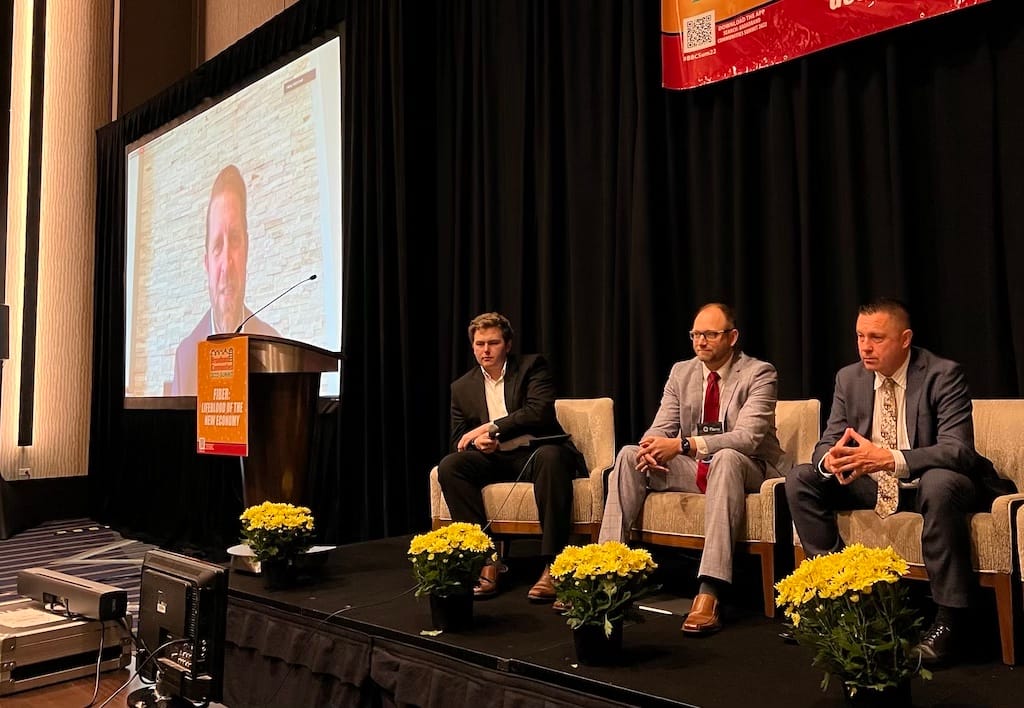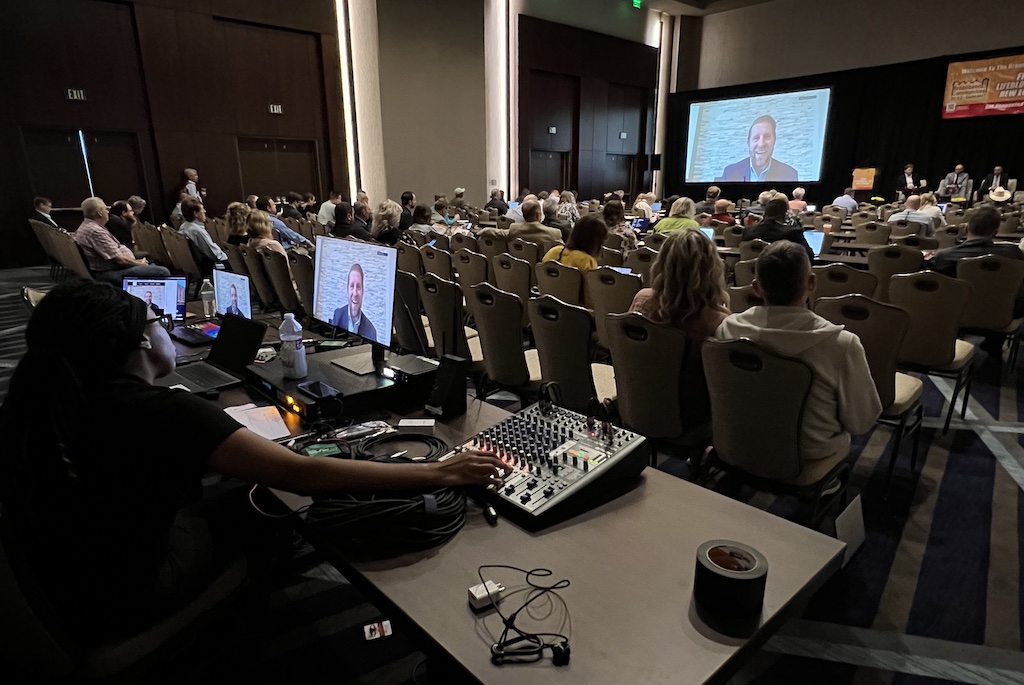Broadband Champions Necessary to Combat Obstacles and Drive Public Financing, Panelists Say
“Some communities are way ahead of others,” Illinois Broadband Office Director Matt Schmit said about quest for IIJA funds.

HOUSTON, May 4, 2022 – Those planning to utilize public funding opportunities need to communicate with all levels of stakeholders and worthwhile partnerships to make the most of Infrastructure Investment and Jobs Act funding.
Financing plans live or die by stakeholder involvement, said Tom Coverick, Keybanc Capital Markets managing director.
“Every project needs a champion,” he said here during Broadband Breakfast’s Digital Infrastructure Investment mini-conference at Broadband Communities Summit on Monday. “We are looking at rising interest rates and [rising] costs of labor. Without the local champions, these local projects would have a very difficult time moving forward.”
“The reality is those champions in the local areas will know everyone who has to get involved, and if they do not know, they will find out how it is pretty quickly,” Coverick said.
“Some communities are way ahead of others,” Illinois Broadband Office Director Matt Schmit said. “There are a lot of really great models around the country that have [created] community engagement and outreach programs.”
Schmit used Illinois’ “Accelerate Illinois” partnership between the state and Heartland Forward. He explained how this program helped guide communities that have committed to securing public funding for broadband but may not have concrete goals or a vision of how to achieve them.
“[These communities] have not had that inclusive conversation at the community level, or they may not exactly know how to put together a grant application, or [how to] find the ideal private provider partner.”
Schmit also emphasized the importance of communication, and emphasized a three-legged stool of access, adoption and use. “Being available [to community leaders – to that local champion –] is really important,” Schmit said. “This is going to make or break so much of our investment in the US.”
California Emerging Technology Fund CEO Sunne Wright McPeak said that communication needs to be encouraged from all stakeholders, top to bottom. She spoke particularly about state leaders informing local community leaders about opportunities available to them through grant funding.

Some of this coordination has helped to drive middle-mile investments to connect qualifying communities, she said.
“Systematically reaching out to the public agencies that have to approve projects and give the permitting, and those that will develop the project and apply for the funding [is critical.” McPeak said.
“The folks who really are on the ground on adoption are what we call the trusted messengers,” she added. “They are the community-based organizations that can do the outreach – in language and culture – and increase that take-rate.”
“Where there is a will, there is a way,” said UTOPIA Fiber CEO Roger Timmerman. “If you have elected officials or groups or community leaders and you want to solve the broadband problem in your area, you need to organize that effort and come up with good partners.”
Information about the presentations made during the “Public Financing” panel are available at the Digital Infrastructure Investment page.










